CDC: Virus could surge if people stop social distancing too early
Reaction and analysis from Fox News medical correspondent Dr. Marc Siegel.
Get all the latest news on coronavirus and more delivered daily to your inbox. Sign up here.
Many people around the world are getting upset over government-overreach lockdowns brought about by the coronavirus pandemic.
Not in Sweden, though, the European country that seems to prefer freedom to safety.
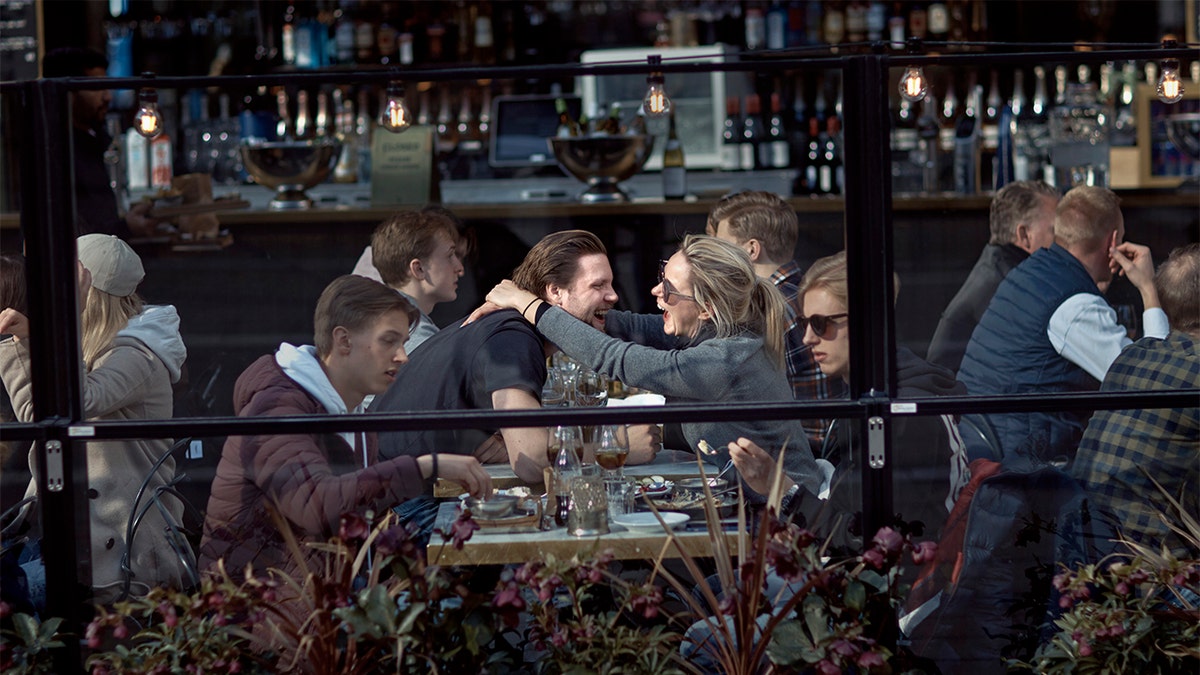
FILE - In this Saturday, April 4, 2020 file photo a couple hug and laugh as they have lunch in a restaurant in Stockholm, Sweden. (AP Photo/Andres Kudacki, File)
CLICK HERE FOR COMPLETE CORONAVIRUS COVERAGE
Crowds swarm Stockholm’s waterfront, with some people sipping cocktails in the sun. In much of the world, this sort of gathering would be frowned upon or even banned.
So far, Sweden has banned gatherings larger than 50 people, closed high schools and universities, and urged those over 70 or otherwise at greater risk from the virus to self-isolate.
The softer approach means that schools for younger children, restaurants and most businesses are still open, creating the impression that Swedes are living their lives as usual.
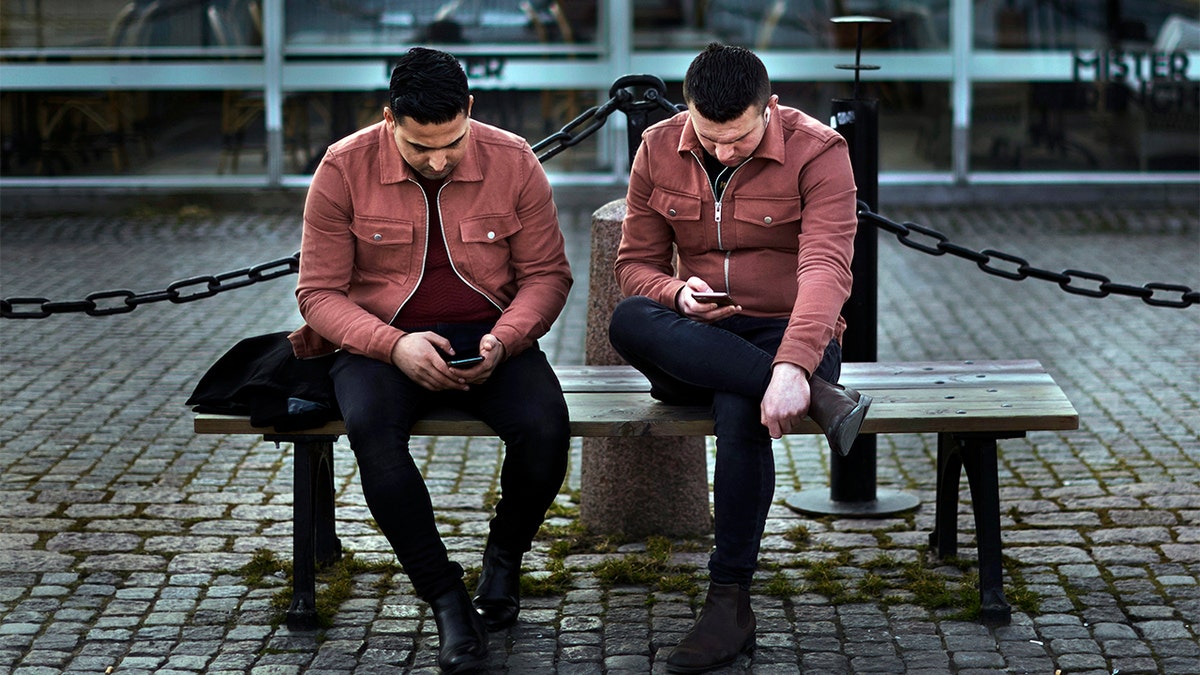
In this Wednesday, April 8, 2020 file photo two men check their phones as they sit near the harbor in Stockholm, Sweden. (AP Photo/Andres Kudacki, File)
Yet as Johan Klockar watches his son kick a ball around a field during a soccer practice in Stockholm, the 43-year-old financial analyst says it’s not like that. He and his wife work from home and avoid unnecessary outings. They socialize in a very small circle and limit their son’s contacts to people he sees at school or soccer practice.
“Society is functioning, but I think it’s quite limited,” Klockar said. “Other than this sort of situation — schools, soccer practice — we basically stay at home.”
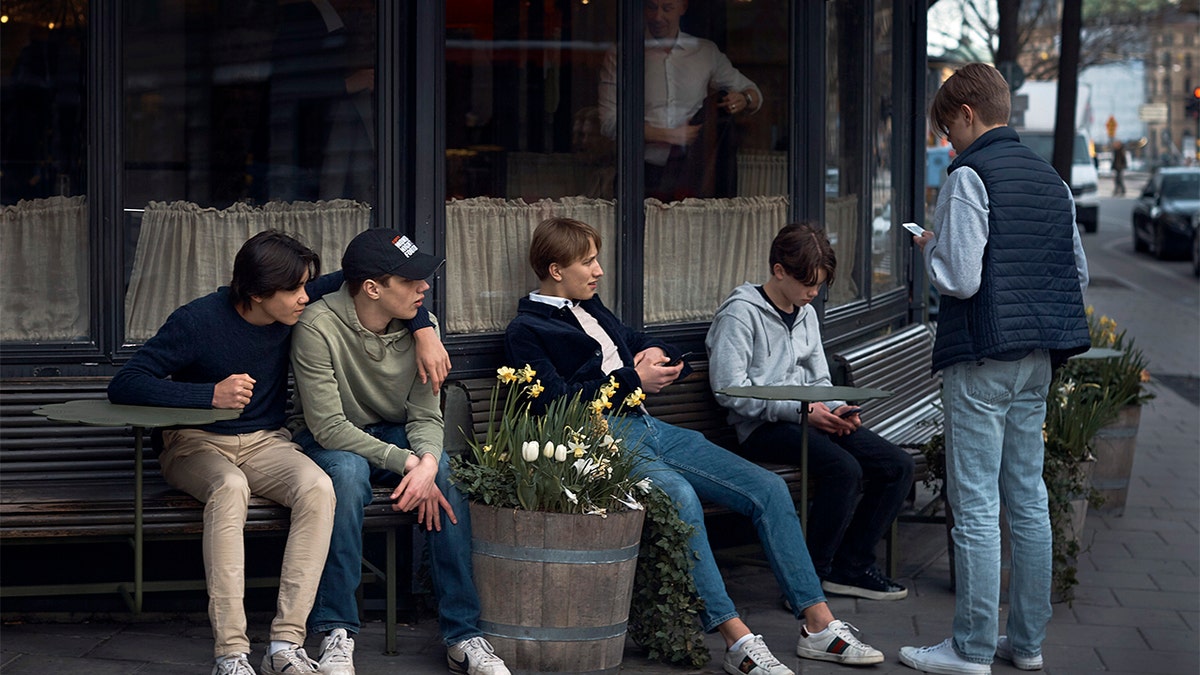
FILE - In this Wednesday, April 8, 2020 file photo youths hang out outside a restaurant in Stockholm, Sweden. (AP Photo/Andres Kudacki, File)
And while most businesses in Sweden are still operating, the economic cost of the pandemic is already being felt. Last week, 25,350 Swedes registered as unemployed, according to the Stockholm Chamber of Commerce — a larger increase than during the 2008 financial crisis.
In contrast, just across a narrow strip of sea, neighboring Denmark is already talking about reopening society. They imposed a much stricter lockdown four weeks ago, closing borders, schools and businesses. This week, the prime minister said by acting early, Denmark averted the tragedy that struck hard-hit nations like Italy and Spain, and will be ready after Easter for a slow return to normal life that starts with reopening preschools and primary schools.

FILE - In this Wednesday, April 8, 2020 file photo a hair stylist works inside her shop in Stockholm, Sweden. Crowds swarm on Stockholm's waterfront, some sipping cocktails in the sun. In much of the world, this sort of gathering would be frowned upon or even banned. Not in Sweden. (AP Photo/Andres Kudacki, File)
For weeks, the numbers of COVID-19 cases and fatalities were proportionally similar between Sweden and Denmark, but while the economic results of the strict isolation are being felt in Denmark, Sweden’s mortality rate has reached more than 88 dead per million, compared with around 47 dead per million in Denmark.
Sweden, with a population of 10 million, has registered around 900 deaths, while Denmark, with 5.8 million people, has more than 270 deaths.
Sweden may be paying a heavy price for embracing the idea of herd immunity — that is, letting many individuals get sick to build up immunity in the population.
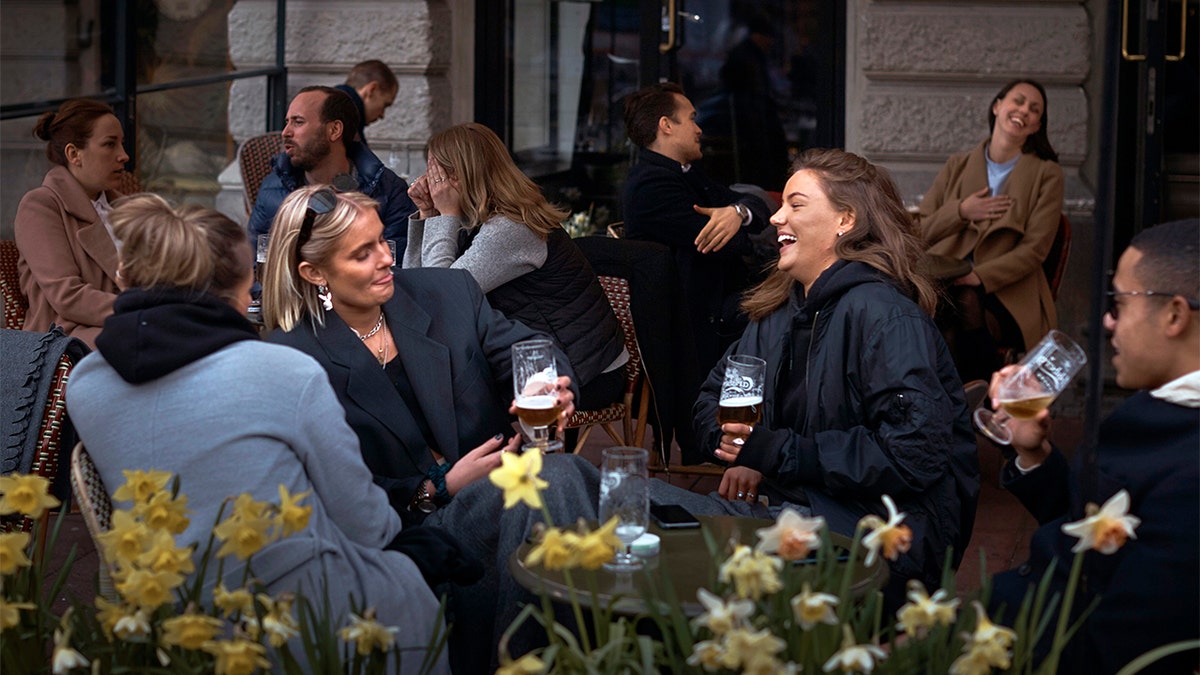
FILE - In this Wednesday, April 8, 2020 file photo people chat and drink outside a bar in Stockholm, Sweden. (AP Photo/Andres Kudacki, File)
Swedish Health Minister Lena Hallengren recently told The Associated Press: “We have never had a strategy for herd immunity.”
Sweden stands out for what Anders Tegnell, the country’s chief epidemiologist and top strategist in the COVID-19 fight, calls a “low-scale” approach that “is much more sustainable” over a longer period.
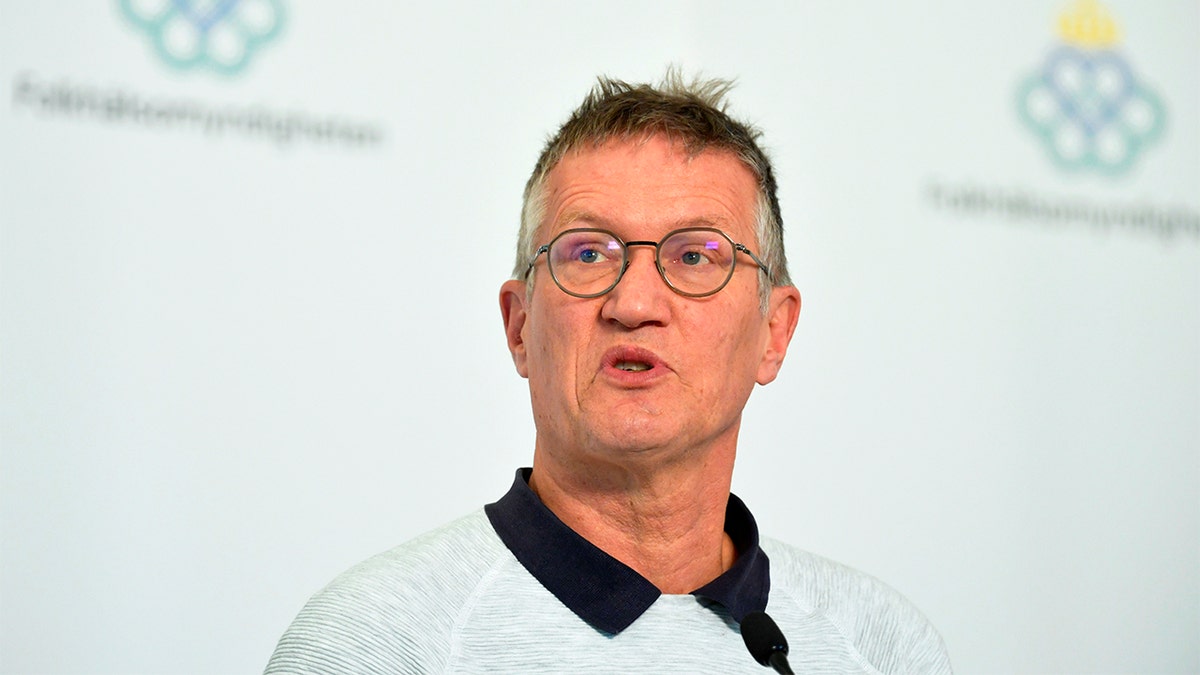
In this photo taken on April 9, 2020 State epidemiologist Anders Tegnell of the Public Health Agency of Sweden talks during a daily news conference on the coronavirus, Covid-19 situation, in Stockholm, Sweden. (Anders Wiklund/TT via PA)
The 63-year-old has become a household name in Sweden, appearing across the media and holding daily briefings outlining the progression of the outbreak with a precise, quiet demeanor.
CORONAVIRUS: WHAT YOU NEED TO KNOW
He insists that Sweden’s approach still seems to make sense, though he also acknowledges that the world is in uncharted territory with the virus.
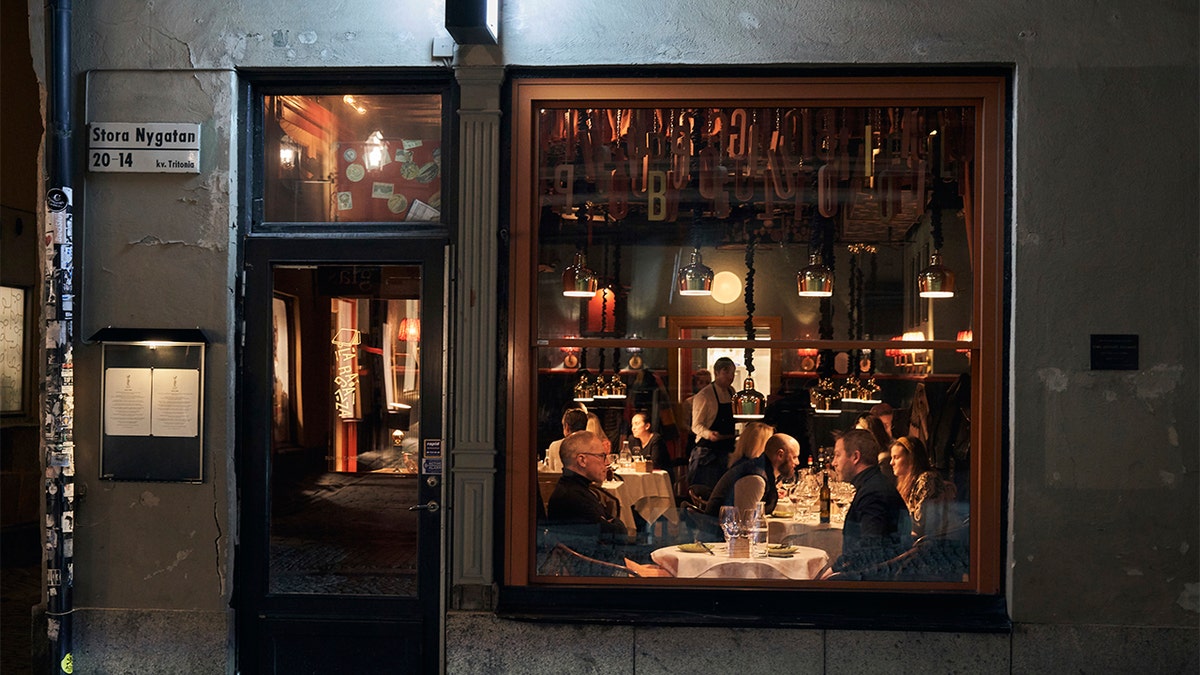
FILE - In this Wednesday, March 25, 2020 file photo people sit in a restaurant in Stockholm. Sweden is pursuing relatively liberal policies to fight the coronavirus pandemic, even though there has been a sharp spike in deaths. (AP Photo/David Keyton, File)
He argues that while Sweden might have more infections in the short term, it will not face the risk of a huge infection spike that Denmark might face once its lockdown is lifted.
“I think both Norway and Denmark are now very concerned about how you stop this complete lockdown in a way so you don’t cause this wave to come immediately when you start loosening up,” he said.
The Associated Press contributed to this report.
